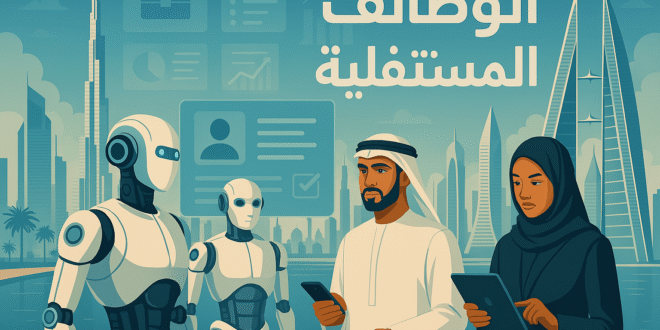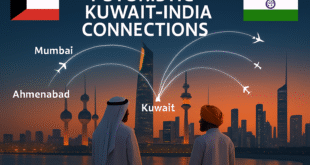I. Gulf Job Market Trends 2025 Are Redefining the Future of Work
The Gulf job market trends 2025 are rewriting the region’s employment landscape. With AI integration, sustainability goals, and ambitious economic diversification plans, countries like the UAE and Saudi Arabia are creating entirely new categories of jobs. Whether you’re a job seeker, recruiter, or business leader, staying ahead of these trends is now crucial.
This blog explores what’s driving change in the Gulf workforce, where opportunities are booming, and how governments are aligning labor markets with national visions like Saudi Vision 2030 and the UAE Centennial 2071.
II. What’s Driving Gulf Job Market Shifts?
🌍 Vision-Driven Economic Diversification
Across the Gulf Cooperation Council (GCC), economic transformation plans are pushing nations beyond oil dependency. Saudi Arabia’s Vision 2030, the UAE’s Green Agenda 2030, and Qatar National Vision 2030 are all reshaping labor demand toward innovation, technology, and clean industries.
According to a recent report by the Gulf Labour Market and Migration (GLMM) observatory, over 65% of new jobs being created in the region in 2025 are non-oil sector roles.
“We’re witnessing the fastest structural shift in the GCC workforce in decades,” says Dr. Aisha Al Marri, labor economist at the UAE University. “The demand for hybrid digital-green skills is exploding.”
📊 Post-Pandemic Tech Boom
The pandemic permanently accelerated the shift to remote and tech-enabled jobs. Now, digital infrastructure, cloud security, fintech, and AI-based customer services are some of the fastest-growing segments across UAE and Bahrain.
Major investments into AI and digital transformation (e.g., Saudi Arabia’s Neom and UAE’s Coders HQ) are turning the Gulf into a regional hub for future-forward careers.
III. Key Sectors Hiring in 2025
🤖 Artificial Intelligence & Cybersecurity
The Gulf’s aggressive digital transformation has increased hiring for roles like AI engineers, data scientists, blockchain developers, and cybersecurity officers. The UAE’s National AI Strategy alone aims to be a global AI leader by 2031, creating thousands of jobs in the process.
🌱 Green Energy & Sustainability
Saudi Arabia’s $500 billion Neom smart city, UAE’s Masdar City, and Oman’s green hydrogen projects are producing high demand for sustainability engineers, environmental consultants, and ESG officers.
🏥 Healthcare & Biotech
Post-COVID health reforms have spurred investments into biotechnology, telemedicine, and digital health. Gulf-wide hiring is strong for medical technicians, AI-enabled diagnostics, and public health consultants.
🧑💻 Freelancing & Gig Economy
Remote work platforms and gig-based projects have gained ground in Qatar and the UAE, particularly for content creators, developers, and translators. Both nations are now offering freelancer visas to tap into this rising segment.
IV. Country-Specific Focus: What to Watch in Each Gulf Nation
🇸🇦 Saudi Arabia
Saudi’s Vision 2030 continues to open opportunities in tourism, hospitality, logistics, and tech. The kingdom added 250,000 jobs in Q1 2025, per Arab News, driven by construction and giga-projects like The Line and Qiddiya.
🇦🇪 United Arab Emirates
The UAE’s green visa and digital economy push are attracting talent in AI, fintech, and sustainability. Dubai Internet City and Abu Dhabi’s Hub71 are hiring at record pace, with Emirati talent development also prioritized.
🇶🇦 Qatar
Post-World Cup, Qatar is focusing on smart city development and healthcare innovation, including precision medicine and digital health tech.
🇴🇲 Oman & 🇧🇭 Bahrain
Oman is emphasizing green hydrogen and logistics corridor development, while Bahrain is strengthening its fintech sector, backed by the Economic Recovery Plan.
👉 Related: UAE Launches World’s First AI-Backed Court for Digital Crimes
V. The Road Ahead for Gulf Careers
The Gulf job market trends 2025 signal a move toward a skills-first, future-proof economy. Traditional roles are being replaced or redefined, and new sectors are blooming faster than governments can regulate them.
For job seekers, the message is clear: upskill in digital and sustainability-linked domains to stay competitive. For policymakers, cross-border cooperation on labor mobility, remote job regulation, and digital labor rights will be key to sustaining this momentum.
 The Credible Story Trending stories that keep you hooked
The Credible Story Trending stories that keep you hooked




